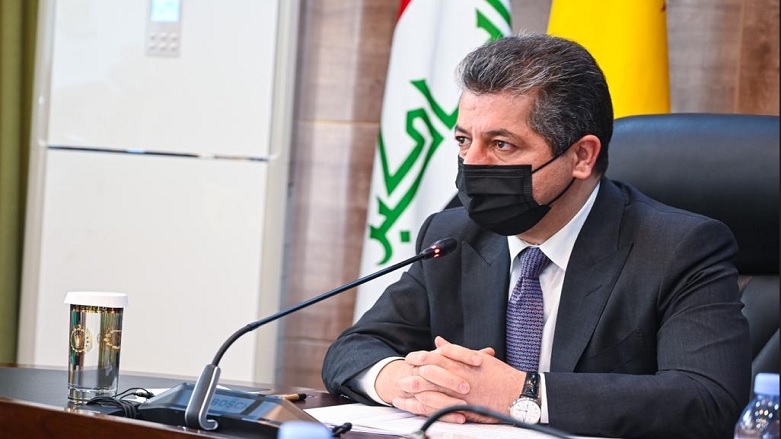Our goal is to diversify the economy and increase non-oil revenues: PM Barzani

ERBIL (Kurdistan 24) – Kurdistan Region Prime Minister Masrour Barzani visited the Ministry of Finance and Economy and was received by the Minister of Finance and Economy Awat Sheikh Janab on Thursday.
The prime minister supervised a special ministry meeting in the presence of its minister, undersecretary, advisors, and general managers.
During the meeting, the Minister of Finance and Economy presented a brief about the ministry's people and departments, activities, plans, projects, and work.
Prime Minister Barzani said that despite the challenges the Kurdistan Region has faced since his ninth cabinet of the Kurdistan Regional Government (KRG) entered office in mid-2019, "we did not stop reform, regulating local imports and reducing spending."
"We achieved success and managed ourselves without resorting to borrowing so as not to impose any burden on future generations," he added.
Furthermore, the prime minister indicated that unnecessary government spending was reduced from $200 million to $70 million. The $130 million saved was returned to the public treasury without obstructing the government's work.
He also said that revenues have relatively improved in the recent period and could be higher due to his government's program aimed at diversifying the economy and increasing non-oil revenues, as there are various ways to increase revenues without putting burdens on citizens.
Barzani clarified that his ninth cabinet did not impose any new taxes. All it did was apply existing tax laws that weren't implemented in the past. He stressed that the implementation of tax laws is in the interest of the Kurdistan Region's citizens, as it will increase income and improve services, such as paying salaries, reviving commercial traffic, and increasing the number of job opportunities.
Prime Minister Barzani also underlined the importance of activating and reforming the banking system and digitizing government services, expenditures, and revenues, stating that this is an essential step towards transparency, reducing red tape, and preventing waste of public wealth.